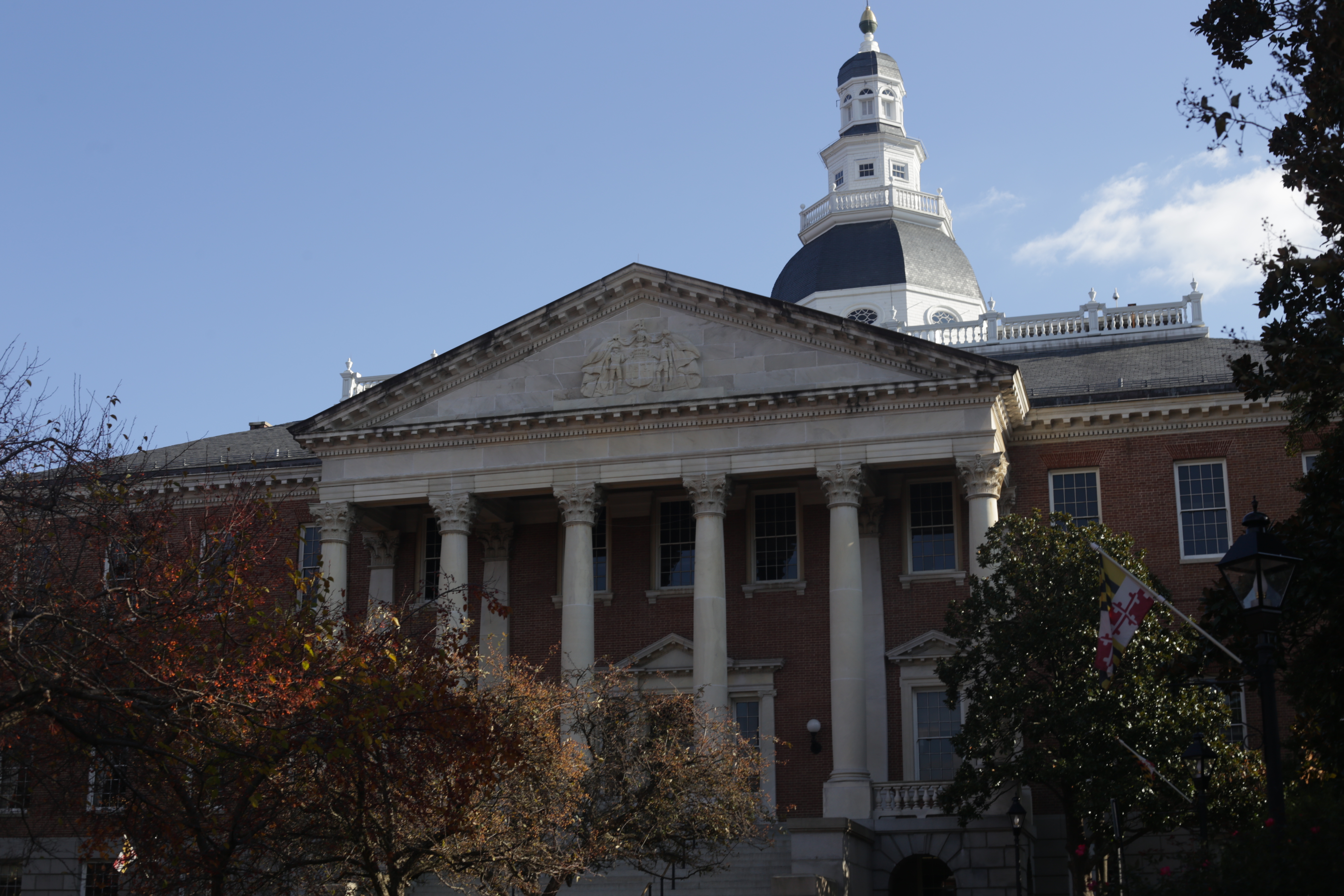The Maryland House of Delegates passed a bill that would ban firearms from public university campuses, making the current University System of Maryland policy law and preventing change from future governors, Boards of Regents or university presidents, the bill’s sponsor said.
House Bill 159, or Weapon-Free Higher Education Zones, is an extension of state law that prohibits guns on K-12 campuses in the state, said Del. Ben Barnes (D-Anne Arundel and Prince George’s), who sponsored the bill. The proposed legislation states that “a person may not carry or possess a firearm on the property on a public institution of higher education,” barring certain circumstances. The bill also requires colleges and universities to post signs at campus entrances, exits and other prominent locations to provide notice about the prohibition.
Lawmakers behind the bill “want to get serious about keeping guns off campus, not just for the madman with the gun,” but also to prevent suicides, accidental shootings and shootings that result from arguments, Barnes said. While the system already prohibits firearms on the campus, the bill would codify this policy, he added.
Violators can receive maximum penalties of a $1,000 fine or three years imprisonment.
“This is something students want by any scientific poll; this is something families want, that parents expect when they send their children to school, and it’s really just common sense legislation,” Barnes said. “By making it state law … we double down on a policy that works, rather than holding our breath and crossing our fingers and hoping it never changes.”
The bill has exceptions for armed guards hired by colleges and universities, on-duty law enforcement officers, law enforcement officers taking classes on university campuses, organized shooting clubs and other approved circumstances.
All 12 university system campuses prohibit deadly weapons except as otherwise provided, said Andy Clark, assistant vice chancellor for government relations. The system supports Barnes’ bill, but wanted to ensure university presidents kept the ability to determine who can carry weapons on the campus, Clark said.
Police officers may need to carry a weapon while taking courses on system campuses, Clark said. Students at Frostburg State University may also have firearms for hunting, and can keep them in the Frostburg State Police Department for safe storage rather than leaving them in vehicles, he added.
Clark said HB 159 allows for these exceptions and addresses system concerns.
“There are just very selective areas where the presidents need the discretion to enhance or make clear the deadly weapons policy on the campus, and we were able to get that in this bill,” Clark said.
Barnes also introduced the bill last year. It passed in the House of Delegates in March but failed to progress through the Senate. Barnes said he expects the legislation to pass in the Senate this year.
David Lloyd, University Police’s chief of staff, testified in favor of the bill along with representatives from Maryland Chiefs of Police Association and the Maryland Sheriffs Association. Possessing a firearm on the campus violates the student code of conduct, but a state law would allow University Police to make arrests, Lloyd said.
Active shooter situations, unsafe storage in university housing and the risk of suicide could all pose a security problem on the campus, he added.
“Weapons on campus is a concern to us as it’s a concern around the country,” Lloyd said.
Samantha Wehr, an exchange student from Austria studying at this university, said “no one has guns” in Europe besides police. She said banning guns from campuses by law is “just what needs to be done.”
“With me being from Europe, it’s just awful to think that everyone could carry a gun around,” said Wehr, who studies English and history.
Junior communication major Desiree Istrati said she has never felt like weapons on this campus has been a concern, but she thinks it is a good idea to have a firearm ban.
“I think that’s right to do,” she said. “I don’t think we should be having guns on our campus — only police should have them or for security reasons.”
Yusuf Mahmood, president of this university’s Young Americans for Liberty chapter, said the organization opposes the bill, as it takes away power from local colleges and communities, allowing state law to overrule what individual campuses want.
“Even if you agree with what the Maryland state government is doing right now on this issue, it sets a bad precedent for other issues like [designations of] sanctuary campuses,” the sophomore economics major said.
Concealed carry permits are also already “extremely difficult” to acquire in Maryland, Mahmood said, adding that he thinks previous victims of domestic violence, stalking or other forms of violence should be able to have their weapons on the campus.
“To me that’s a no-brainer,” Mahmood said.
Barnes’ bill has been assigned to the Maryland Senate Judicial Proceedings Committee, but the committee has not scheduled a hearing date. Sen. William C. Smith, (D-Montgomery County), is also sponsoring a version of the act, and the committee will hold a hearing on that bill March 1.



